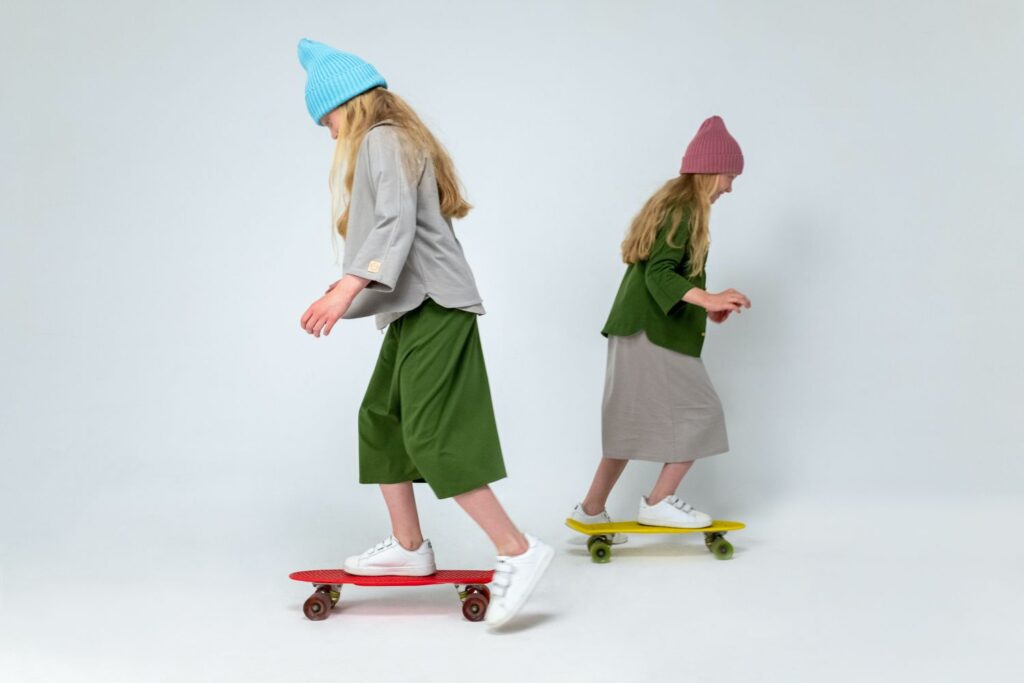If you have or know others with kids close in age, you might hear the term “Irish twins.” Siblings born in rapid succession can have a special bond. Understanding Irish twins can help you decide whether you want to have your kids closer together or farther apart.
Table of Contents
What Are Irish Twins?

Irish twins are two children who share the same mother and are born a year or less apart — though some people include kids who are born 13 or more months apart, too. Generally, the term is for siblings who end up in the same grade or are the same age for a long time.
The term “Irish twins” originated in the 1800s and was used to make fun of Irish Catholic immigrants without access or belief in birth control. The derogatory joke eventually became a normalized term for children born close together.
Unlike the name suggests, Irish twins aren’t biologically twins since the mother didn’t carry them simultaneously. They also aren’t expected to be at similar stages of development. Conception with an Irish twin occurs around three months after the first baby’s birth, often putting them in the same classes or sports teams growing up.
Potential Risks of Close Pregnancies
While the general recommendation is for biological mothers to avoid sexual intercourse for six weeks after giving birth, that can depend on the individual. According to the American College of Obstetricians and Gynecologists (ACOG), getting pregnant soon after birth can pose significant risks.
At a minimum, ACOG recommends waiting between six and 18 months before getting pregnant again to lower the risk of complications. Possible risks of an Irish twin pregnancy include anemia, low birth weight, uterine rupture, placental abruption, premature birth or mental disorders for the baby. Little research surrounds close pregnancies and many Irish twins are born healthy.
There is a common misconception that breastfeeding will prevent ovulation, but that is not always the case. If you want to avoid Irish twins, it’s best to use another method of birth control.
Some Advantages of Irish Twins
If you end up with Irish twins, there are advantages to having kids close together.
While you’ll be in the infant stage with both at the same time, you only go through it once — unless you decide to have more children later on. Some parents enjoy the baby stage, while others prefer it when their kids can do more. If you are the latter, you can get to that point faster.
Kids who are close in age will likely have a close bond. They go through similar life stages and events around the same time and may share similar interests. While siblings who are years apart will be in different grades, schools or extracurricular activities, Irish twins might share them. It gives them more in common than others would have, opening the door for mutual understanding.
Being Irish twins gives your kids a fun, special fact about their relationship. They might have fun pretending they’re identical or fraternal twins while in school or joking with friends. As a parent, Irish twins can also mean sharing items like bottles, clothes and toys, which can save money.
Tips for Raising Irish Twins
Having Irish twins can be challenging to navigate. Here are some tips that can make raising Irish twins easier.
Ask for Help
Raising one baby is hard, and multiples can be a challenge. Two young babies at different developmental stages can be an even more significant challenge. It takes a village. You’re allowed to accept help from trusted family and friends.
Letting someone watch your children can give you time to engage in self-care, which can benefit your physical and mental health. If you have a partner, divide your responsibilities as equally as possible.
You can reach out in person and online to find people who can relate to having kids close in age. Research in-person parent groups or join online pages made for Irish twin parents. If you feel overwhelmed, consider speaking to a mental health professional.
Don’t Force Independence
Having an independent child is handy when you have another to care for, but it could also damage your oldest’s mental health. You might not realize you’re forcing them to grow up too fast.
That’s not to say that you shouldn’t encourage your children to be independent on a developmentally appropriate level. Kids naturally want to try new things and feel less reliant on others. Encourage them when they show interest, but try not to pressure them into something they’re not ready to do.
You don’t want to fall into the reverse, either. It can be easy to group kids close in age, but even a few months make a large developmental difference for babies and toddlers. It’s good to check in with doctors, teachers and others you trust about meeting each child where they’re at.
Throughout your experience raising kids close in age, try to dedicate time to nurture them both independently and together. Doing so will give you time to learn and cater to each child’s emotional and intellectual needs while they still feel equally a part of your family.
Try to Relax
Raising kids is an amazing, stressful, chaotic and daunting task. No parent is perfect, and you’re going to make mistakes. Knowing this and making the right decisions can help you feel better about your role.
Having kids close in age is a wild ride, but there is plenty to love, from getting to know them as individuals and watching their sibling bond develop in unique ways. Being a parent is easier said than done, but loving and caring for your kids is what matters most.
Understanding Irish Twins
Irish twins are rare but can happen even if you don’t plan them. The good news is that there are benefits and with a bit of help, you can have two thriving kids.













